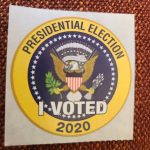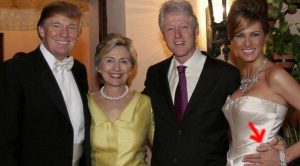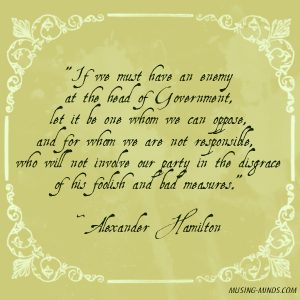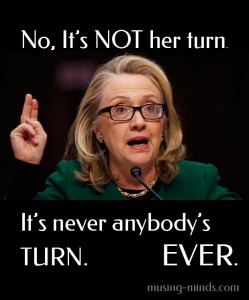The United States Senate
Apparently, it’s time to discuss the United States Senate and how it works. Again.
Yesterday, Eric Swalwell (D-CA) tweeted this:
I don’t know where he’s getting his 2,000 senators over the next 250 years from. There are still only two per state as it has been since the inception of the country. We started with 26 (two for each of the 13 States) and we now have 100 (two for each of the States). This Valentine’s Day will mark the 110th anniversary of the 48th state, Arizona, being admitted to the union. The final two, Alaska and then Hawaii, were admitted on January 3 and August 21 of 1959 respectively.
Does he see in that a trend that will add 1,000 states over relatively the same period of time? Also, the House has been limited to 435 members since 1929 and the Permanent Apportionment Act. Where would he put 2,000 Senators and the however many added House members?
Or, as is more probable, does he think that the Senate is or should be based on the population like the House of Representatives is. There are many, many people who are under this misapprehension.
So let’s go over it. The Constitution of the United States, Section 3 deals with the Senate.
The Senate of the United States shall be composed of two Senators from each State, chosen by the Legislature thereof, for six Years; and each Senator shall have one Vote.
The phrase chosen by the Legislature has been changed by the 17th Amendment to the Constitution.
The Senate of the United States shall be composed of two Senators from each State, elected by the people thereof, for six years; and each Senator shall have one vote. The electors in each State shall have the qualifications requisite for electors of the most numerous branch of the State legislatures.
When vacancies happen in the representation of any State in the Senate, the executive authority of such State shall issue writs of election to fill such vacancies: Provided, That the legislature of any State may empower the executive thereof to make temporary appointments until the people fill the vacancies by election as the legislature may direct.
This amendment shall not be so construed as to affect the election or term of any Senator chosen before it becomes valid as part of the Constitution.
The States gave up power when they ratified the 17th Amendment on April 8, 1913, nearly a year after it was passed by Congress on May 13, 1912. It’s also confused a lot of people into thinking that the Senators work for the People instead of for the States.
This is an important distinction because the House of Representatives, the People’s representatives, the people who vote for the popular stuff, vote for the, well, popular stuff. Stuff that brings money back to their districts, money for their constituents, the “free” stuff.
But a lot of that popular stuff comes along with strings. The Federal Government (your taxes) will pay for some of that stuff or will pay for that stuff for a certain period of time but then the State has to pick up the rest. But the promise was for the whole thing. For example, the Federal law says 10 years of Medicaid funded at a certain level but the Fed funding will actually be for four years and the State has to fund it for the final six.
The Senate is supposed to take a look at things like this and say, whoa! Wait a minute! Let’s take a step back and rethink this. Maybe we don’t want those strings. Maybe we don’t want to accept this. During Obamacare Ben Nelson of Nebraska got wording placed in the bill to have Nebraska’s share of the expansion of Medicaid covered for his cloture vote. That Cornhusker Kickback was eventually removed. But Nelson did at least try to represent the State’s interests.
Electoral College
When people get confused over the Senators they get confused over the Electoral College as well. They think that smaller states are “over-represented” because they have three electoral votes versus the larger states that have more. They’ll take the population of the state, divide by the number of electors and show that the quotient of the population of the small state divided by three is smaller than the quotient of the larger state divided by the larger number of electors.
Except that that’s not how it works. That’s not how any of this works. Each and every state gets one elector for every Senator. Two for every State. There’s your two. Every state gets one for each of its House Members (Congressional Districts). One hundred electors are divided evenly between the states and 435 electors are divided by population between the states. Just like both Chambers of Congress. It’s not now and never has been divide 535 by population. It’s always been two separate groups.
A few years ago (before CA lost Representatives) someone said it wasn’t fair that Alaska had three Electoral Votes for ~740K people and California had 55 Electoral Votes for ~39 million people. They said that 740,000/3 was 246,667 and 39,000,000/55 was 709.090 so there were like, two times as many people per Electoral Vote in California and it wasn’t FAIR!
Except… Alaska’s EV per Population is ~740,000 and EV per State is 2. And (at the time) California’s 39,000,000/53 = ~735,849 and that’s pretty close to Alaska’s ~740,000 and they still have their 2 State EVs so pretty even.
The Constitution says that “each State shall have at Least one Representative” so a couple of smaller states (WY, VT) may have a very slight population/representative ratio advantage but it’s really negligible.
Election Reform
It’s more than time for election reform.
States need to reform elections.
Government-issued photo ID required. The Left keeps trying to pretend that Voter ID is a special entity in and of itself when it isn’t. It’s only a government-issued photo ID which nearly every adult of voting age who wishes to register to vote already has and if they don’t can be obtained for free. Drivers license, State ID, Passport, Military ID, Trusted Traveler Card…
Voter Registration sunsets and must be renewed just like a driver’s license, state ID, Passport. Say every five years. If you don’t renew when it sunsets you can re-register, but otherwise, you are purged. People who have moved away or died will, of course, not be renewing, so they’ll get purged.
No same-day registration. Everyone knows when the elections are held. There is plenty of time to register to vote.
Early voting limited to one week prior to election day including a weekend. None of this weeks-and-weeks of early voting and speculating on who is ahead.
The Federal Government can “encourage” consistency amongst the several states like it did with the drinking age or the 55 mph speed limit…
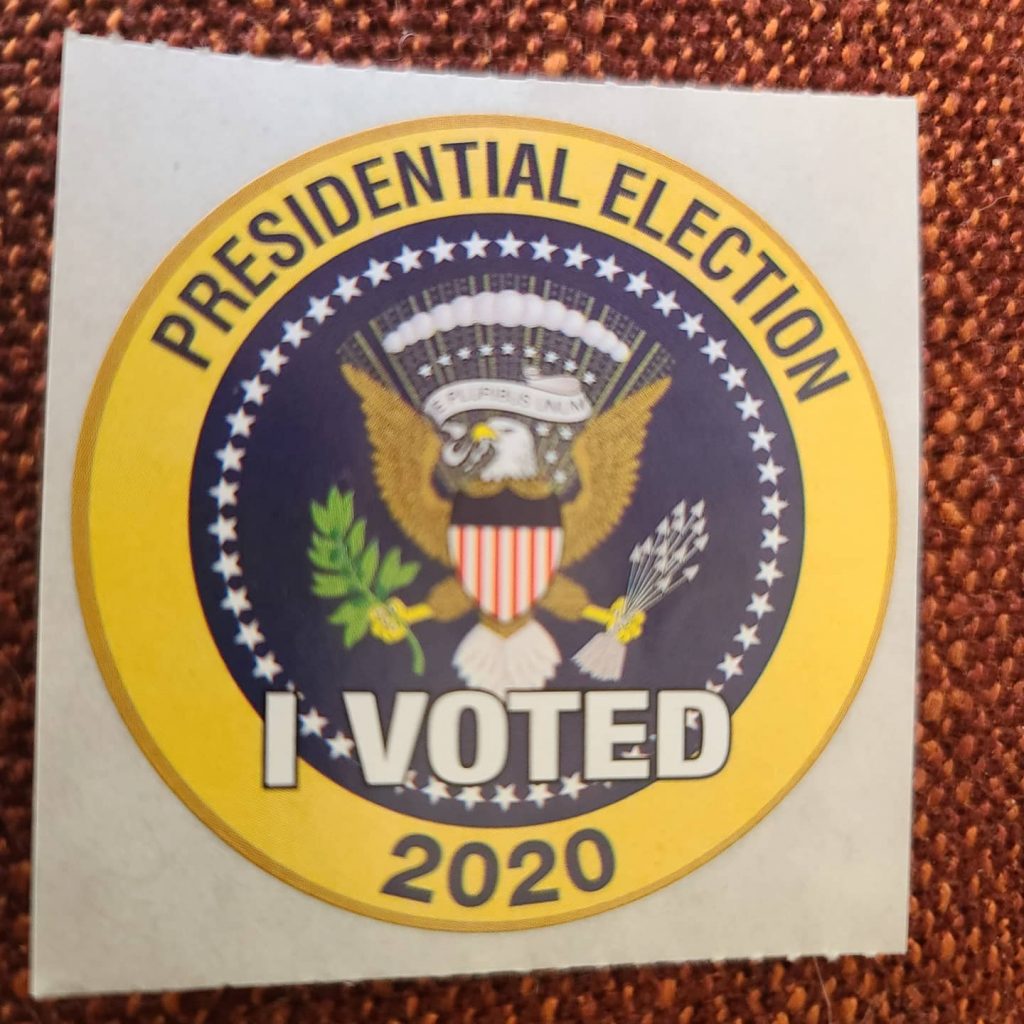
Journalists and Fact-checking
Earlier today there was a press conference in Las Vegas regarding one or more lawsuits to be filed regarding dead people voting, people who don’t live in Clark County voting in Clark County, and they had an older woman with them who said that when she went to vote she and her roommate were told that they had already voted. She said someone had taken their mail-in ballots and used them. Nevada mailed ballots to everyone whether they asked for one, or not.
After the press conference, David Asman on Fox News was commenting that they were making a lot of allegations but providing no proof at the press conference and that they should have to the journalists. That giving the journalists the proof was necessary. That the journalists were the fact-checkers.
Yes, David. Journalists are fact-checkers. Journalists should go and check the facts as given to them. Not just demand proof at a press conference — which doesn’t seem to happen at all press conferences — but go and independently check the facts as given.
Go and find out if there are instances of the “dead” voting. Go and find out if people who no longer reside in Clark County are recorded as having voted in Clark County. Go and find out if people were turned away at the polls as having already voted when they hadn’t.
THAT is fact-checking, not just getting something from the people who are holding the press conference.
Election Day 2020

Impeachment
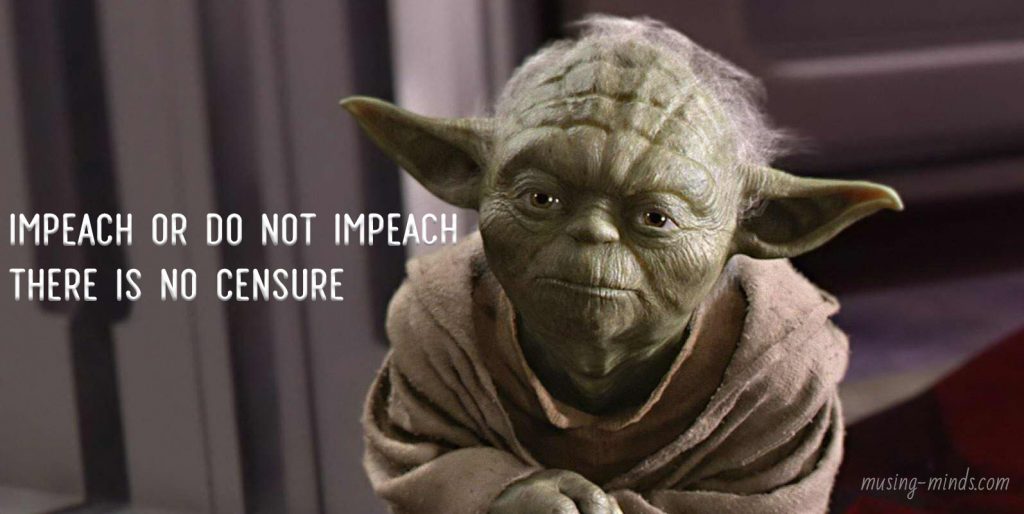
The Clintons and the Trumps
Alexander Hamilton Said it Well
What if…
Campaign Cash and Citizens United
The group Citizens United wanted to air a movie critical of Hillary Clinton and air commercials advertising it. They came up against McCain-Feingold and sued the Federal Election Commission to be able to air the movie and advertise for it near an election. The Supreme Court eventually ruled in their favor.
Hillary Clinton and the Left are very much against the ruling in Citizens United. They want to undo the decision by passing a bill through both houses of Congress and having the President sign it into law. So she rails against money in politics, all the while raking in money hand over fist.
They act as if the Citizens United decision helps only conservatives. Just like they act as if the Religious Freedom Restoration Acts in various states help only Christians. But the Citizens United decision can help people on all sides, as the RFRAs can help more than just Christians. Remember the first RFRA signed by Bill Clinton was enacted to help Native American Indians who wanted to use Peyote in religious ceremonies.
Of course, Hillary has more reason to loathe Citizens United. They made a film that didn’t show her in best of lights.



